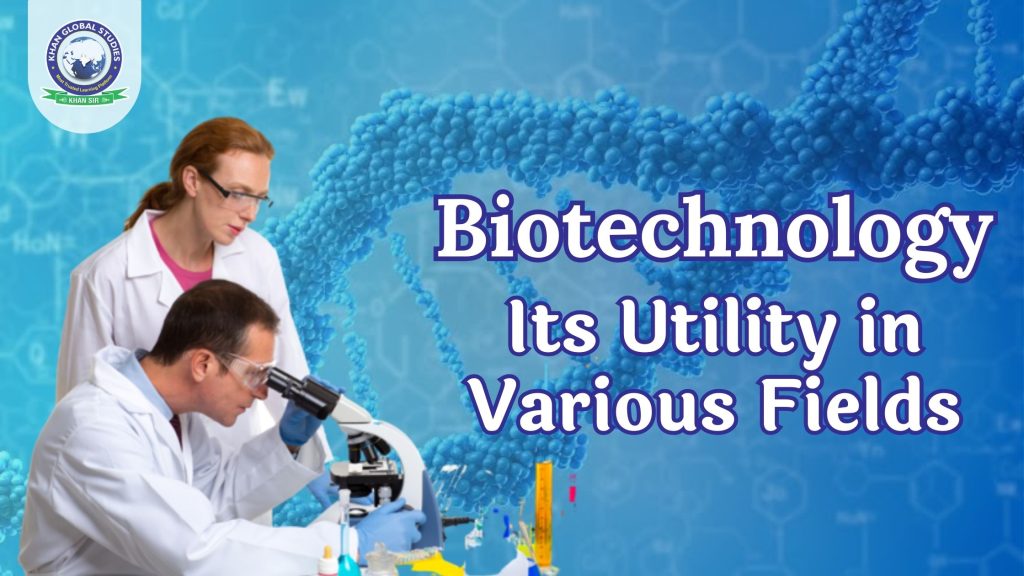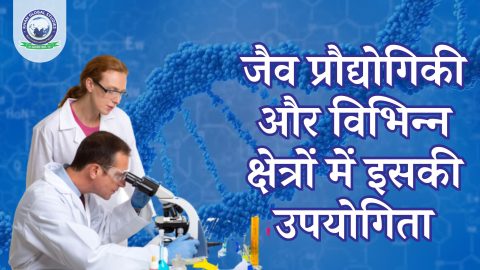Biotechnology is the branch of science that develops new technologies and products using living organisms and biological systems. This field is a combination of biology, chemistry, physics, and engineering, which searches for discoveries and innovations to improve our lives.
Brief History of Biotechnology
Biotechnology has been used since ancient times when people used microorganisms to make wine, bake bread, and turn milk into yogurt. Modern biotechnology began in the 20th century when the structure of DNA was discovered and techniques of genetic engineering were developed.
Key Components
- Biological Systems: Biological systems refer to living organisms or biological processes that are used in bio-technology. These may include bacteria, viruses, fungi, plants, and animals.
- Genetic Engineering: Genetic engineering is a process in which the chromosome structure of organisms is changed by making changes to their DNA. This technique plays an important role in the development of new drugs, vaccines, and agricultural products.
- Bioinformatics: Bioinformatics is the field in which biological data is collected, analyzed, and interpreted. It is important in genetic research, drug development, and disease diagnosis.
The Biotechnology in the Health Sector
- Development of New Drugs: It has made the development of new and more effective drugs possible. Biotech companies are using proteins and enzymes to create drugs that can treat various diseases.
- Gene Therapy: Gene therapy is an innovative medical method in which defective genes are replaced with healthy genes to treat diseases. This technology is proving to be revolutionary in the treatment of genetic diseases.
- Vaccine Manufacturing: It is also being used in the development of vaccines. These vaccines boost immunity, helping to prevent diseases.
- Disease Diagnosis: It has also made disease diagnosis more accurate and quick. With the help of DNA-based tests, diseases can be detected early, making timely treatment possible.
Biotechnology in Agriculture
- Development of GM Crops: Genetically modified (GM) crops are developed using it. These crops have higher yields, are resistant to pests and diseases and can grow even in adverse climatic conditions.
- Pest and disease-resistant plants: Pest and disease-resistant plants are developed through biotechnology. These plants are injected with genes that protect them from pests and diseases.
- Organic Fertilizers and Pesticides: Biotechnology has also contributed to the development of organic fertilizers and pesticides. These products are more environmentally friendly than chemical fertilizers and pesticides.
- Increase in Crop Production: The use of bio-technology is also increasing crop production. With the help of new technologies and improved seeds, farmers can produce more, thereby ensuring food security.
Biotechnology in Horticulture
- Promotion of Ornamental Plants: New varieties of ornamental plants are being developed through bio-technology. These plants are more beautiful and disease-resistant, which enhances the beauty of gardens.
- Development of new varieties of flowers: Biotechnology has also contributed to the development of new and unique varieties of flowers. These flowers are unique in color, shape and fragrance, which give a new dimension to gardening.
- Promoting plant growth: Plant growth can also be promoted through bio-technology. With the help of special biological products and techniques, the growth rate of plants can be increased.
Use of Biotechnology in Industry
- Production of Biofuels: Biotechnology is also being used in the production of biofuels. Biofuels are environmentally friendly and provide a sustainable alternative to conventional fuels.
- Industrial Enzymes: Industrial enzymes are produced through biotechnology. These enzymes are used in various industrial processes, thereby improving productivity and quality.
- Manufacture of Bioplastics: Biotechnology is also being used in the manufacture of bioplastics. Bioplastic is safe for the environment and helps in reducing the problem of plastic waste.
Biotechnology in Environment
- Organic Waste Management: Biotechnology is also being used in organic waste management. With the help of biological processes, waste materials are recycled and disposed of, thereby protecting the environment.
- Water Purification: Water purification techniques are also being developed through biotechnology. These techniques help in making water pure and pollution-free.
- Pollution Control: Biotechnology is also being used in pollution control. With the help of biological processes, air, water, and soil pollution can be reduced.
Benefits and Challenges of Biotechnology
- Benefits: Biotechnology has many benefits. It plays an important role in the development of new drugs and vaccines, increasing agricultural production, improving industrial processes, and environmental protection.
- Challenges: There are also some challenges in the use of bio-technology. These include ethical issues, safety concerns, and lack of public awareness.
Conclusion
Bio-Technology is an extremely important and promising field that can revolutionize various areas of our lives. With its correct and safe use, we can touch new heights in the fields of health, agriculture, industry and the environment.
FAQ
Q: What is the biggest advantage of biotechnology?
Ans: The biggest advantage of it is that it helps in the development of new and effective medicines, vaccines and agricultural products, thereby improving the quality of our lives.
Q: Is biotechnology safe for the environment?
Ans: Yes, bio technology can be safe for the environment if used correctly and responsibly. Biofertilizers, pesticides and bioplastics are some examples.
Q: What are GM crops?
Ans: GM crops are genetically modified crops whose DNA is altered to make them resistant to pests and diseases and produce more.
Q: How to make a career in biotechnology?
Ans: To make a career in biotechnology, it is necessary to have higher education and research experience in related subjects. For this, courses like BSc, MSc and PhD can be done.
Q: What is the future of biotechnology?
Ans: The future of bio-technology is bright. With new research and technological advancement, this field is set to play an even more important role in health, agriculture, industry and the environment.
Q: Who is the Father of Indian Biotechnology?
Ans: Pushpa Mitra Bhargava is considered the Father of Indian Biotechnology. He was born on February 22, 1928 and died on August 1, 2017. Dr. Bhargava was a renowned scientist, visionary and social worker.




